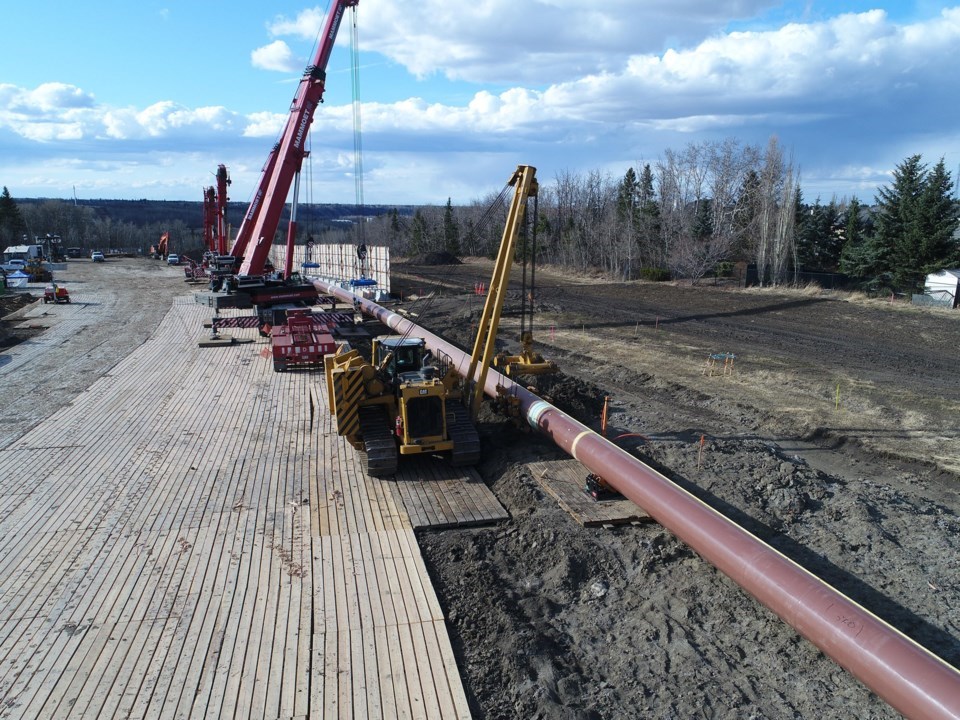West Coast Environmental Law says over two-thirds of Canadians polled oppose dipping into their own pockets to pay for the Trans Mountain pipeline’s growing cost overruns, as outlined by the Auditor General of Canada Tuesday, in Ottawa.
The legal advocate, which opposes the pipeline’s construction, released a survey conducted by Nanos Research, whereby only 18 per cent of respondents said the government is “heading in the right direction” with the pipeline and 68 per cent oppose a write-down of debts.
The auditor noted Tuesday that last January the government-backed Trans Mountain Corporation revised its cost estimate for the pipeline expansion project to $30.9 billion, up from $21.1 billion. A second-quarter report from the corporation continues to express “uncertainties” about financing the completion.
In early 2023, the corporation proposed a borrowing plan to finance the remaining construction costs, the auditor noted.
“Given that it will need additional funding to meet the remaining construction costs, the corporation, in its unaudited financial statements for the second quarter of 2023, continued to report a significant uncertainty over continuing operations,” the auditor’s Commentary on the 2022–2023 Financial Audits noted.
“The corporation’s financial statements call into question its ability to fund the remaining construction costs of the pipeline expansion project and to make the necessary payments on its existing debt without the direct financial support of the Government of Canada,” the auditor stated in a news release.
Already the government is guaranteeing $16 billion in debt, up from $7.2 billion to pay for the pipeline, which twins an existing one from Alberta’s oil sands to the Port of Vancouver.
If oil revenues cannot cover the pipeline costs then the government, and hence taxpayers, will be on the hook, noted Eugene Kung of West Coast Environmental Law, who commissioned the poll.
“Finance Minister [Chrystia] Freeland has a choice between taxpayers and oil companies, and Canadians have made their position clear: oil companies should pay for their own infrastructure,” said Kung.
“Sixty per cent of respondents want mostly oil companies to pay for TMX, while three per cent said it should mostly be government/taxpayers and 32 per cent said it should be a mix of both,” the poll found.
“The federal government has spent reams of political and financial capital on TMX, but Canadians do not support billions of dollars in additional subsidies to the oil and gas companies. These are the same companies that continue to report massive profits while the average Canadian struggles with the cost of living,” stated Kung.
On Tuesday, –°¿∂ ”∆µ Premier David Eby expressed little regrets about opposing the project via legislation (to bar interprovincial shipments of heavy crude) that was ultimately quashed by the court as unconstitutional in January 2020.
“If only someone had suggested that this pipeline not be built,” said Eby, adding the costs of the project are to be born by the federal government and no support will come from –°¿∂ ”∆µ
“I guess, for all of us that were promised, among other things, cheaper gas as a result of this pipeline, that seems very unlikely,” the premier said.


